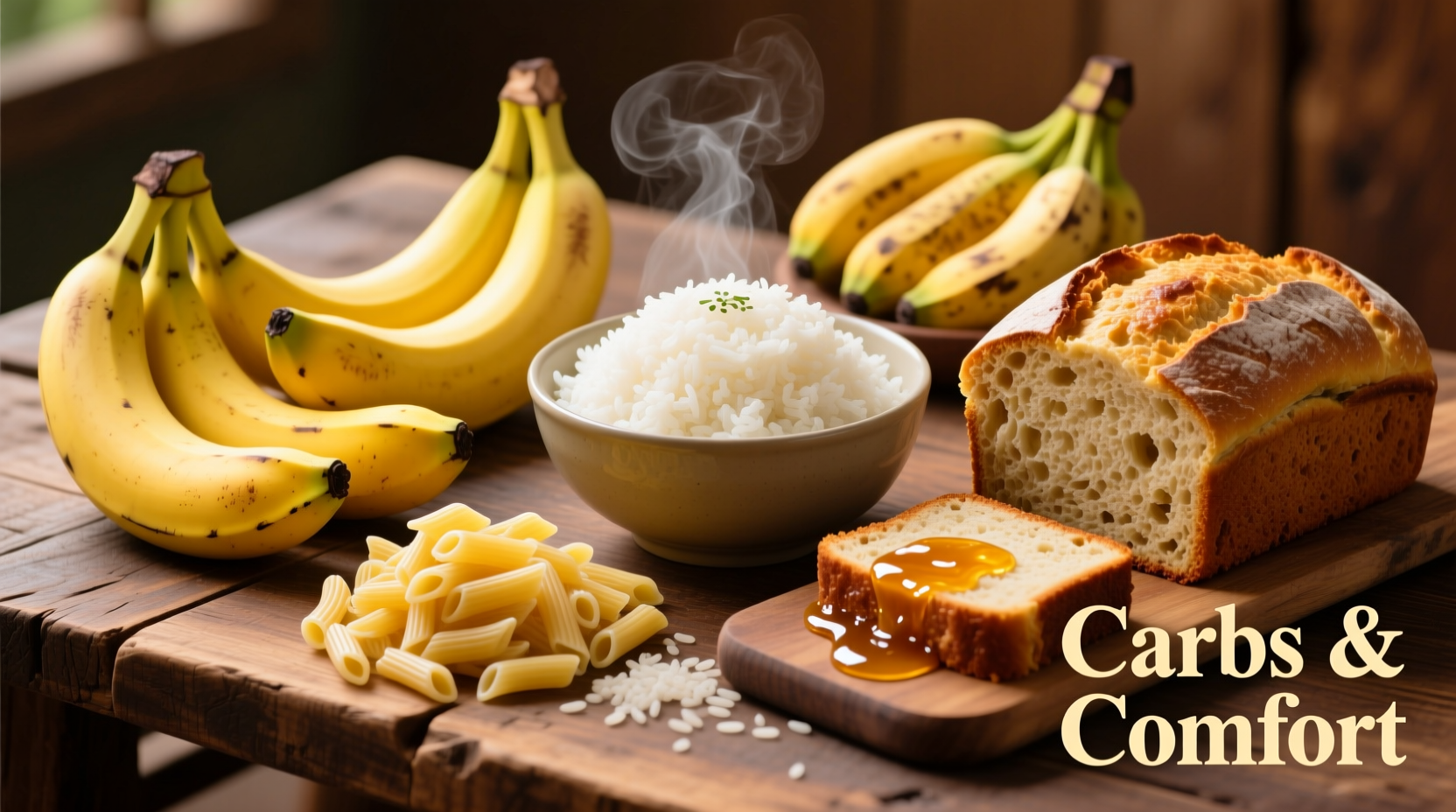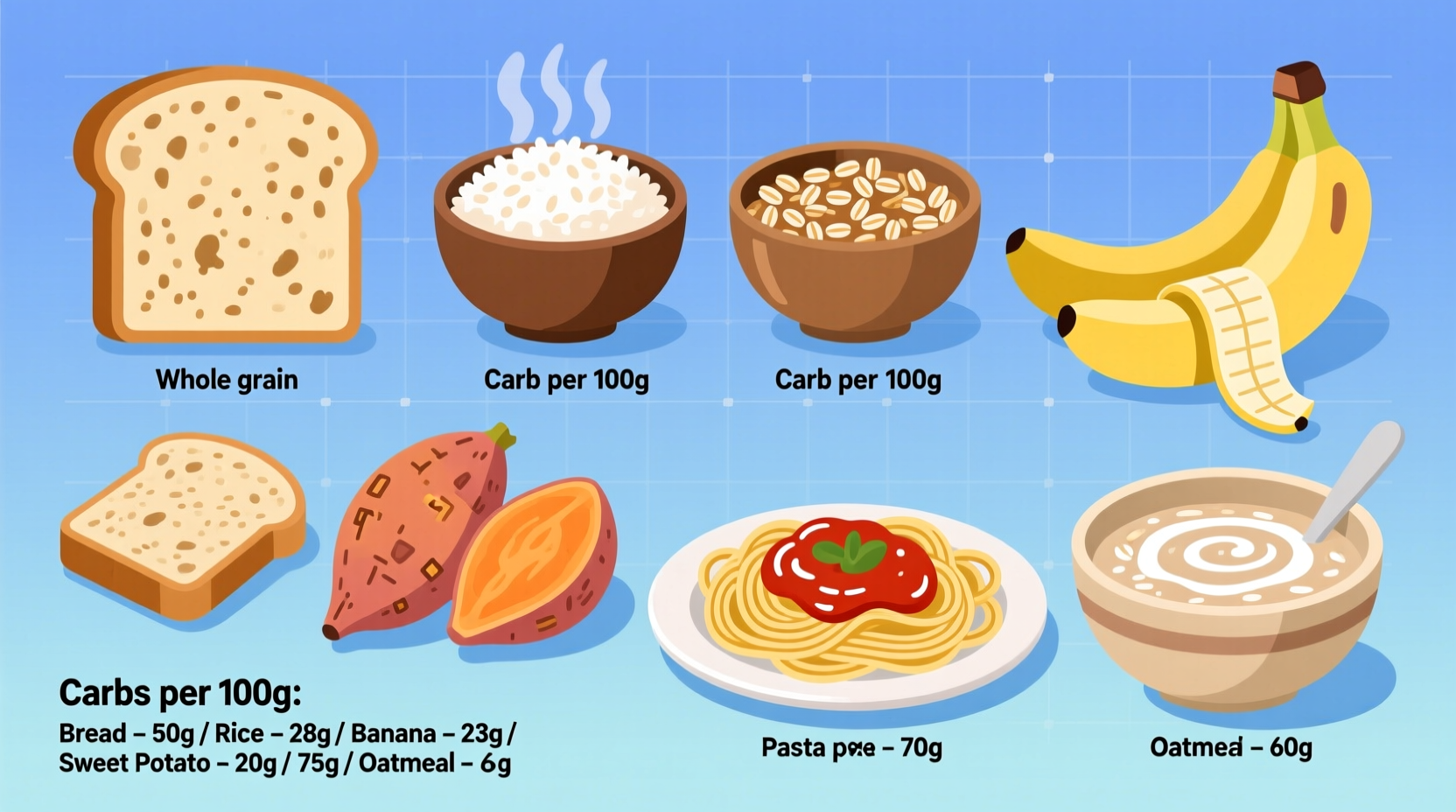When you're looking to understand which foods pack the most carbohydrates, you need clear, actionable information that helps you make informed dietary choices. Whether you're an athlete optimizing performance, managing blood sugar levels, or simply curious about nutrition, knowing exactly which foods are highest in carbs—and why it matters—can transform how you approach your meals.
Understanding Carbohydrate Density
Carbohydrates come in various forms, from simple sugars to complex starches and fiber. The most carb-dense foods typically contain 20g or more per standard serving. According to the USDA FoodData Central database, these foods deliver substantial carbohydrate content that significantly impacts your daily intake.
Top High-Carb Food Categories
Grains and Starchy Staples
Grains form the foundation of carb-rich diets worldwide. White rice, in particular, stands out as one of the most concentrated sources. A single cup of cooked white rice contains approximately 45g of carbohydrates, making it a primary energy source in many cultures. Other notable grain-based carb sources include:
- White bread (15g per slice)
- Pasta (40-45g per cooked cup)
- Oatmeal (27g per cooked cup)
- Corn (27g per cup)
Fruits with Highest Carb Content
While fruits offer valuable vitamins and fiber, some contain significant carbohydrates. The following fruits rank highest in carb density:
- Bananas (27g in a medium fruit)
- Mangoes (25g per cup)
- Grapes (27g per cup)
- Pineapple (22g per cup)
Legumes and Beans
Legumes provide both protein and substantial carbohydrates. A single cup of cooked lentils delivers approximately 40g of carbs along with 18g of protein, making them a nutrient-dense choice. Other high-carb legumes include:
- Chickpeas (45g per cup)
- Black beans (41g per cup)
- Kidney beans (40g per cup)
| Food Item | Carbohydrates (per standard serving) | Fiber Content |
|---|---|---|
| White rice (1 cup cooked) | 45g | 0.6g |
| White bread (1 slice) | 15g | 0.7g |
| Banana (medium) | 27g | 3.1g |
| Lentils (1 cup cooked) | 40g | 15.6g |
| Soda (12oz) | 39g | 0g |
Carbohydrate Quality Matters
Not all high-carb foods deliver equal nutritional value. The Dietary Guidelines for Americans have evolved in their recommendations regarding carbohydrates. In the 1980s, carbohydrates were promoted as the foundation of a healthy diet. By the 2000s, emphasis shifted toward whole grains and complex carbohydrates. The current 2020-2025 guidelines recommend that 45-65% of daily calories come from carbohydrates, with at least half coming from whole grains and fiber-rich sources.

Practical Considerations for High-Carb Foods
When incorporating carb-dense foods into your diet, consider these important factors:
Contextual Appropriateness
High-carb foods serve different purposes depending on your circumstances. Athletes may benefit from carb-loading before endurance events, while individuals managing diabetes need to carefully monitor portions. The American Diabetes Association recommends that people with diabetes work with healthcare providers to determine appropriate carb intake, typically ranging from 45-60g per meal.
Processing Impact on Carb Quality
The way foods are processed significantly affects their carbohydrate profile. Whole wheat bread retains more fiber and nutrients than white bread, resulting in a slower release of glucose into the bloodstream. According to research published in the American Journal of Clinical Nutrition, minimally processed carbohydrate sources generally have lower glycemic indices, making them better choices for sustained energy.
Combining Carbs for Balanced Nutrition
Pairing high-carb foods with protein and healthy fats can moderate blood sugar response. For example, eating an apple with almond butter slows the absorption of carbohydrates compared to eating the apple alone. This approach aligns with Mediterranean dietary patterns, which emphasize balanced meals incorporating quality carbohydrates alongside other nutrients.
Common Misconceptions About High-Carb Foods
Many people assume all high-carb foods are unhealthy, but this oversimplification ignores important nutritional context. Whole food sources of carbohydrates provide essential vitamins, minerals, and fiber. The key distinction lies between nutrient-dense carb sources and those offering primarily empty calories. For instance, a baked potato with skin delivers potassium and vitamin C along with its carbohydrates, while soda provides sugar without nutritional benefits.











 浙公网安备
33010002000092号
浙公网安备
33010002000092号 浙B2-20120091-4
浙B2-20120091-4